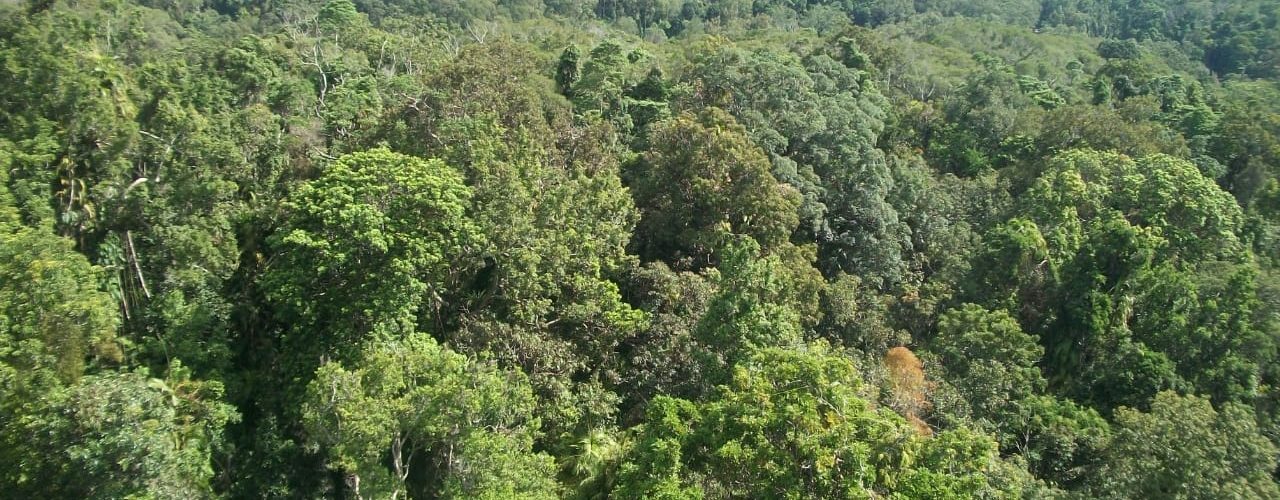Today, India released its forest report that assesses the forest and tree resources in the country.
Minister for Environment, Forest and Climate Change, Mr. Bhupender Yadav released the India State of Forest Report 2023 (ISFR 2023) at Forest Research Institute, Dehradun.
The ISFR has been brought out by the Forest Survey of India (FSI) biennially since 1987. FSI carries out an in-depth assessment of the forest and tree resources in India based on the interpretation of Remote Sensing satellite data and field-based National Forest Inventory (NFI), and the results are published in the ISFR.
The India State of Forest Report 2023 is the 18th such report in the series and contains information on forest cover, tree cover, mangrove cover, growing stock, carbon stock in India’s forests, instances of forest fire, agroforestry, etc.
To present a detailed picture of forest health at the country level, special thematic information on forest cover and important characteristics of forests have been reported in the India State of Forest Report.
As per the present assessment, the total Forest and Tree cover is 8,27,357sq km, which is 25.17 per cent of the country’s geographical area. The Forest Cover has an area of about 7,15,343sq km (21.76%) whereas the Tree Cover has an area of 1,12,014 sq km (3.41%).
The Minister expressed happiness over the fact that compared to 2021, there is an increase of 1445 sq km in the country’s total forest and tree cover. He also highlighted the near real-time fire alerts and forest fire services provided by FSI using advanced technology.

Major Findings
The Forest and Tree cover of the country is 8,27,357 sq km which is 25.17 per cent of the geographical area of the country, consisting of 7,15,343 sq km (21.76%) as forest cover and 1,12,014 sq km (3.41%) as tree cover.
As compared to the assessment of 2021, there is an increase of 1445 sq km in the forest and tree cover of the country which includes 156 sq km increase in the forest cover and 1289 sq km increase in tree cover.
- The top four states showing a maximum increase in forest and tree cover are Chhattisgarh (684 sq km) followed by Uttar Pradesh (559 sq km), Odisha (559 sq km) and Rajasthan (394 sq km).
- The top three states showing a maximum increase in forest cover are Mizoram (242 sq km) followed by Gujarat (180 sq km) and Odisha (152 sq km).
- Area-wise top three states having the largest forest and tree cover are Madhya Pradesh (85,724 sq km) followed by Arunachal Pradesh (67,083 sq km) and Maharashtra (65,383 sq km).
Area wise top three states having the largest forest cover are Madhya Pradesh (77,073 sq km) followed by Arunachal Pradesh (65,882 sq km) and Chhattisgarh (55,812 sq km).
In terms of the percentage of forest cover concerning total geographical area, Lakshadweep (91.33 per cent) has the highest forest cover followed by Mizoram (85.34 per cent) and Andaman and Nicobar Island (81.62 per cent).
The present assessment also reveals that 19 states and Union Territories have more than 33 per cent of the geographical area under forest cover. Out of these, eight states and Union Territories namely Mizoram, Lakshadweep, Andaman and Nicobar Island, Arunachal Pradesh, Nagaland, Meghalaya, Tripura, and Manipur have forest cover above 75 per cent.
The total mangrove cover is 4,992 sq km in the country.
The total growing stock of India’s forest and trees outside forests is estimated as 6430 million cum, of which 4479 million cum is inside the forests and 1951 million cum outside the forest area. There is an increase of 262 million cum of total growing stock as compared to the previous assessment which includes an increase of 91 million cum inside the forest and 171 million cum outside the forest area.
The extent of bamboo bearing area for the country has been estimated as 1,54,670sq km. As compared to the last assessment done in 2021 there is an increase of 5,227 sq km in bamboo area.
The total annual potential production of timber from trees outside the forest has been estimated as 91.51 million cum.
In the present assessment, the total carbon stock in the country’s forest is estimated to be 7,285.5 million tonnes. There is an increase of 81.5 million tonnes in the carbon stock of the country as compared to the last assessment.
Regarding the status of achievement of the target under Nationally Determined Contributions related to carbon sequestration, the current assessment shows that India’s carbon stock has reached 30.43 billion tonnes of CO2 equivalent; which indicates that as compared to the base year of 2005, India has already reached 2.29 billion tonnes of additional carbon sink as against the target of 2.5 to 3.0 billion tonnes by 2030.
Wrapping Up
Besides providing vital information for monitoring the country’s forest and tree resources, the data given in the India State of Forest Report serves as a useful source of information for the policymakers, planners, State Forest Departments, research organisations, line agencies involved in various developmental works, academicians, civil society and others interested in natural resource conservation and management.
Multiple reasons can be credited for India’s growing tree and forest cover, including several government schemes and interventions related to forest protection and conservation at the national and state levels.
Additionally, there is a growing awareness among individuals and civil society, who are indulging in massive tree plantation exercises and initiatives around environmental conservation.
Want to know more about the importance of Forests. Read here.
Want to know the role of mangroves in the ecosystem? Read here.
Want to know the significance of rainforests? Read here.






Add comment